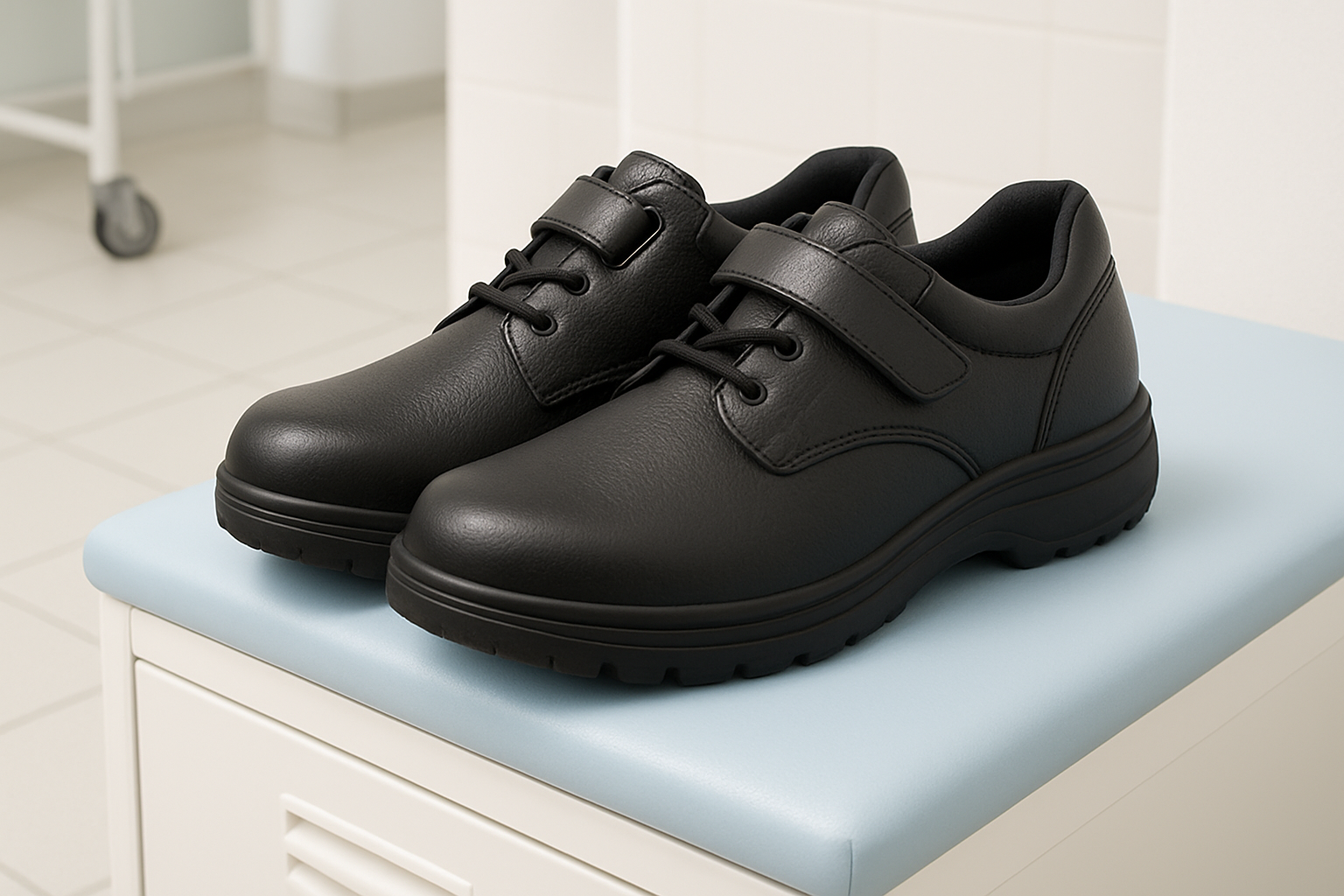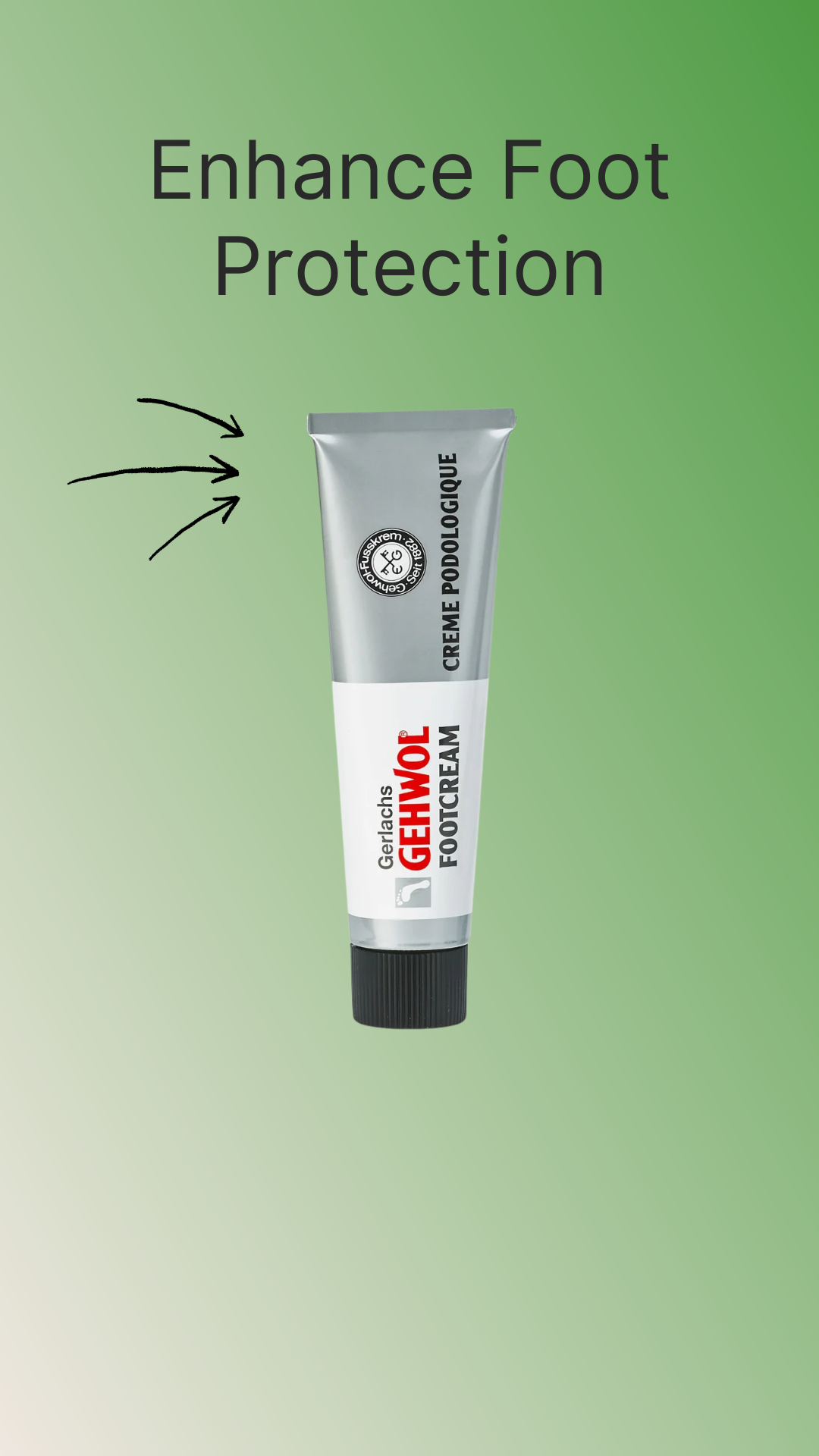Introduction
Nursing is one of the most physically demanding professions in the UK. Nurses spend long hours standing, walking between wards, assisting patients, and performing repetitive tasks that place enormous pressure on the feet. Research shows that healthcare workers walk 4 to 5 miles during a single shift—often on hard hospital flooring.
The wrong footwear can lead to foot pain, back problems, and even injuries that affect performance and quality of life. Proper shoes, however, make a world of difference. Orthopedic work shoes designed for nurses provide cushioning, stability, and support that help reduce fatigue and prevent injury.
In this guide, we’ll explore what makes the best shoes for nurses, the features that matter most, and how supportive footwear can keep healthcare professionals comfortable throughout their shifts.
Why Nurses Need Supportive Work Shoes
Long Hours on Hard Floors
Hospital environments typically have hard, flat flooring, which puts extra strain on feet and joints. Cushioning is essential to absorb shock and prevent fatigue.
Constant Movement
Nurses are rarely off their feet. Shoes need to be lightweight and supportive, preventing pain even after 10–12 hours of walking and standing.
Safety Considerations
Hospital floors can be slippery. Non-slip soles protect against accidents in busy environments.
Professional Appearance
Work shoes must not only be comfortable but also suitable for professional healthcare settings—clean, smart, and practical.

Key Features of the Best Work Shoes for Nurses in the UK
Cushioned, Shock-Absorbing Insoles
Reduce foot and leg fatigue during long shifts. Removable insoles also allow for orthotic inserts if needed.
Lightweight Design
Prevents exhaustion and makes movement easier.
Non-Slip Outsoles
Grip is vital in hospital environments where spills are common.
Breathable Materials
Shoes should regulate temperature and reduce sweating during busy shifts.
Wide & Deep Fit
Accommodates swelling that often occurs after long hours on the feet.
Easy to Clean
In healthcare settings, shoes must be hygienic. Smooth, wipeable surfaces are ideal.
Professional Styling
Shoes should look smart and uniform-appropriate while still being practical.
Everyday Benefits for Nurses
-
All-day comfort: Cushioned soles ease strain on feet, ankles, and knees.
-
Improved focus: Less foot pain means more energy for patient care.
-
Safer steps: Slip-resistant soles prevent workplace accidents.
-
Reduced long-term injury risk: Supportive shoes protect against chronic issues like plantar fasciitis or back pain.
-
Confidence in appearance: Professional, stylish designs suitable for hospital environments.
Lifestyle Scenarios
-
12-hour shifts: Supportive shoes keep nurses going through long, demanding days.
-
Night shifts: Lightweight, cushioned shoes reduce fatigue even during extended hours.
-
Emergency response: Non-slip soles and supportive structure ensure safety during high-pressure situations.
-
Daily commutes: Comfortable shoes double as reliable footwear for walking to and from work.
FAQ – Work Shoes for Nurses
Q: Can nurses wear trainers instead of orthopedic shoes?
A: Trainers can work if they provide cushioning and support, but orthopedic shoes are designed specifically to reduce strain during long shifts.
Q: Are slip-on shoes safe for nurses?
A: Slip-ons can be convenient, but they must have secure fits and non-slip soles to be suitable in hospital environments.
Q: Do work shoes for nurses need arch support?
A: Yes, arch support is crucial to prevent fatigue and conditions like plantar fasciitis.
Q: Are waterproof shoes necessary for nurses?
A: Not always, but shoes should be easy to clean and resistant to spills.
Q: Can orthopedic work shoes be stylish?
A: Yes, modern designs blend professional styling with orthopedic support.
Q: How often should nurses replace their work shoes?
A: Ideally every 12 months, or sooner if soles wear down. Worn shoes can compromise both comfort and safety.
Final Thoughts
Nursing is a demanding profession that requires footwear built for endurance. The best work shoes for nurses in the UK combine cushioning, stability, slip resistance, and professional appearance—helping healthcare professionals stay safe, comfortable, and focused on patient care.
For nurses, investing in high-quality orthopedic shoes isn’t just about comfort—it’s about protecting long-term health, preventing injuries, and performing at their best throughout every shift.



